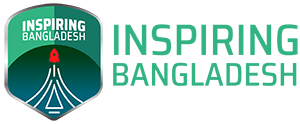Bangladesh has already become a role model for the world in its integrated management of natural disasters, its use of micro-credit and its role in poverty alleviation, transparency and fairness in conducting elections, popularization, positive changes in social and economic indicators.This Bangladesh has had to overcome thousands of obstacles to get to where it is today. Bangladesh has been able to make significant progress in education, child mortality reduction and poverty reduction. Nobel laureate Indian economist Amartya Sen's remarks are noteworthy in this regard. According to him, in some cases, Bangladesh has a surprising success. In particular, education facilities, women's empowerment, reduction of maternal and child mortality and birth rates, provision of toilets and health facilities for the poor and immunization of children are among the activities.
At the time of independence, Bangladesh was one of the poorest countries in South Asia. In this reality, Bangladesh was called a 'bottomless basket' by the then US National Security Adviser Henry Kissinger. For several years after his birth, Bangladesh was like a huge island of poverty and deprivation. However, the situation worsened in 1974, when the Nixon administration abruptly cut off food aid to Bangladesh during the famine.
Bangladesh's GDP per capita is now close to that of India and significantly surpasses that of Pakistan. Bangladesh is one of the top exporters of readymade garments globally and other sectors in the country are also advancing. For example, the pharmaceutical industry in Bangladesh has a lot of potential. The 300 companies in the industry (some of which also conduct research) are now meeting 98 percent of domestic demand and are also starting to export globally.
Finally an important factor has helped to strengthen Bangladesh's economic success. That is the strong leadership of Prime Minister Sheikh Hasina. The current prime minister has been criticized many times, but she has made a significant contribution to the country's upward turn. Although the constitution of Bangladesh guarantees religious freedom, it has been challenged by fundamentalist groups. Religious fundamentalists have denied what the famous Bangladeshi commentator Abul Barkat described as "liberal and humanist Weser Islam in East Bengal". Sheikh Hasina, who is completely secular in her heart, has suppressed these destructive forces.







Comments (0)